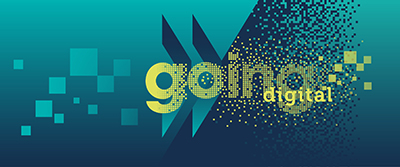Well-being and the digital transformation: Strengthening digital government
12 Mar 2019 15:15h - 16:15h
Event report
[Read more session reports and live updates from the OECD Going Digital Summit]
The session explored ways to strengthen digital government, focusing on the introduction of information and communications technology (ICTs) into public administration, and its relative implications on the work of governments. The session was moderated by Ms Irène Hors (Deputy Director, Directorate for Public Governance, OECD) and featured the shared experiences of Italy, Estonia, Lithuania, and Sweden.
Mr Diego Piacentini (Former Government Commissioner for the Digital Agenda, Italy) talked about the capabilities that the private sector needs to have in order to help the digitalisation of the public sector. He argued that there is a need to start from the citizens and ‘work backwards’ instead of starting from laws and regulation related to big actors. Moreover, he stressed the necessity for data sharing practices among countries when it comes to the digital identification of citizens, as it has been done so far with passports and other forms of identification.
Mr Siim Sikkut (Government Chief Information Officer, Estonia) explained the full digitalisation pathway undertaken by Estonia. The beginning stages of this process were deeply centralised, whereas today, there is a more decentralised structure when it comes to the governance of national digitalisation. It should be noted that the process was made effective with the establishment of legislations that pushed the public sector to go digital. Moreover, Sikkut stressed the need for constant experimentation and implementation of existing practices. As the governance challenge is a tricky one for all governments, a guidebook of best practices should be a way to improve how governments are run around the world.
Mr Elijus Čivilis (Vice-Minister of Economy and Innovation, Lithuania) stressed the importance of new digital skills and literacy for individuals and civil servants. Lithuania is replacing information technology (IT) departments with digital departments meant to drive the digital transformation of the agencies and institutions. Furthermore, underlying the need for co-operation in the digital age, he talked about Cross-border Cooperation, a key European Neighbourhood Instrument between Latvian, Lithuanian, and Belarusian organisations in the 2014-2020 period. Finally, he concluded by saying that in order to have effective digitalisation, the presence of technical infrastructures has to be complemented with a good level of digital literacy.
Ms Darja Isaksson (Director-General Vinnova, Sweden) highlighted that processes of digitalisation inevitably implies challenges made by potential vulnerabilities and a form of exclusion for those not able to access new technologies or lacking digital literacy. Nonetheless, using a security studies reference by Daase and Kessler, she argued that the approach to vulnerabilities and security concerns posed by new technologies should be tackled shifting their framework from ‘unknown unknowns’ (phenomena that we cannot imagine or anticipate) to ‘known unknowns’ (uncertainties that can be tamed ontologically). The digital transformation means that the government has to play a new role not just providing agency leadership but guiding it in order to respect established principles.
By Stefania Grottola
Related topics
Related event

